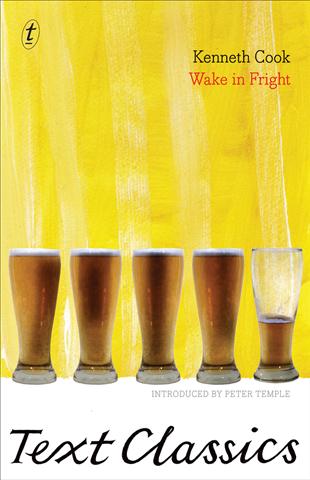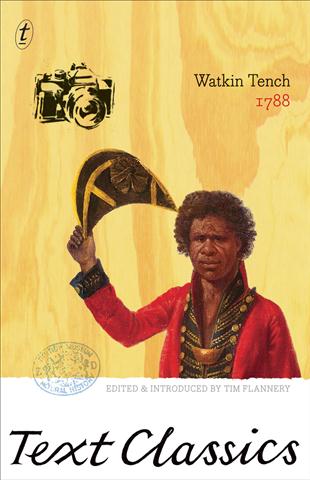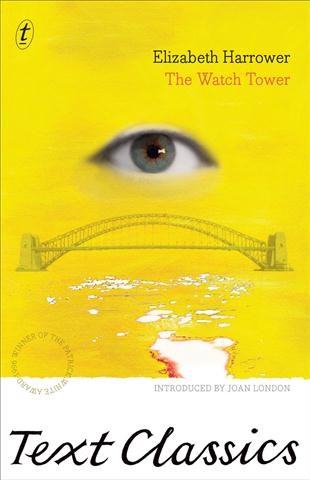 | |
| Heyward | |
In what publisher Michael Heyward called "a bold new venture for the company," Text Publishing, whose headquarters are in Melbourne, Australia, is beginning direct distribution in the U.S. and Canada through Consortium. The highly regarded company will publish some 40 titles over the next five months, half of which are from its new Text Classics line.
Text published the first 50 Text Classics titles in Australia last year and is doing another 30 titles this year. The paperback editions, many of which have been overlooked for years, have a uniform look, featuring yellow covers, and are from Australia (with a few from New Zealand). Most have introductions written by writers.
 "So many of these titles have been out of print are so hard to find, and it makes no sense as we speed into the digital era for these national treasures not to be available," Heyward said, noting that it is not uncommon for great writers to go through a period of neglect. "Melville went out of print for 20 or 30 years, and soon after her death, Jane Austen was out of print," he said. "We want to be the champion of these books and make the case for them to a new generation of readers--and in the U.S., a whole country of readers--who in many cases have no idea the books exist at all."
"So many of these titles have been out of print are so hard to find, and it makes no sense as we speed into the digital era for these national treasures not to be available," Heyward said, noting that it is not uncommon for great writers to go through a period of neglect. "Melville went out of print for 20 or 30 years, and soon after her death, Jane Austen was out of print," he said. "We want to be the champion of these books and make the case for them to a new generation of readers--and in the U.S., a whole country of readers--who in many cases have no idea the books exist at all."Text has a "close working arrangement" here with Grove/Atlantic, which has published some Text authors, notably Tim Flannery, and it has a similar arrangement with Canongate in the U.K. It will continue to sell rights to individual titles. In the case of Text Classics, however, Heyward said, "It made a lot of sense to keep the collection intact." Text Classics launched in the U.K. in February. The deal with Consortium, under which Text aims to release four each month, "gives us more flexibility about how we bring our books to North America," Heyward said. "We want to form relationships with booksellers in the U.S."
 Text Classics titles appearing in the next few months include:
Text Classics titles appearing in the next few months include:- 1788 by Watkin Tench. The author was a captain of the marines in the First Fleet that established the first British colony in Australia. Tench was "a natural storyteller" and here provides an account of the infant colony.
- The Fortunes of Richard Mahony by Henry Handel Richardson (the pen name of Ethel Florence Lindesay Richardson), which Heyward called "a masterpiece" about a doctor who joins the Gold Rush in 1852.
- Careful, He Might Hear You by Sumner Locke Elliott, which won the Miles Franklin Award in 1963. The author emigrated to the U.S. and was a playwright in New York for many years.
- Wake in Fright by Kenneth Cook, the "ultimate Outback thriller," which "set Australian tourism back several decades."
---
Here we offer a review of Text's inaugural title, distributed by Consortium in North America:
 In Elizabeth Harrower's "criminally overlooked" 1966 novel, The Watch Tower (Text Classics, $14.95, 9781921922428), Laura and Clare Vaizey's father dies shortly before the onset of World War II. Their mother, a self-possessed woman utterly uninterested in the lives of her daughters, pulls the sisters out of boarding school and moves with them to a flat in Sydney, Australia. Not long after the war breaks out, the mother decides to return home to her brother and extended family overseas. To avoid total abandonment and ensure that Clare doesn't have to quit school, Laura marries Felix Shaw, her boss and owner of a box factory in Sydney. Felix's behavior, at first seeming only enigmatic and detached, becomes outright cruel, and as Felix navigates a number of ill-fated business ventures with younger, more successful men, he channels his own feelings of emasculation and failure into his campaign of psychological and emotional warfare against the Vaizey sisters.
In Elizabeth Harrower's "criminally overlooked" 1966 novel, The Watch Tower (Text Classics, $14.95, 9781921922428), Laura and Clare Vaizey's father dies shortly before the onset of World War II. Their mother, a self-possessed woman utterly uninterested in the lives of her daughters, pulls the sisters out of boarding school and moves with them to a flat in Sydney, Australia. Not long after the war breaks out, the mother decides to return home to her brother and extended family overseas. To avoid total abandonment and ensure that Clare doesn't have to quit school, Laura marries Felix Shaw, her boss and owner of a box factory in Sydney. Felix's behavior, at first seeming only enigmatic and detached, becomes outright cruel, and as Felix navigates a number of ill-fated business ventures with younger, more successful men, he channels his own feelings of emasculation and failure into his campaign of psychological and emotional warfare against the Vaizey sisters.Although the narration sometimes jumps frustratingly fast between times, places and perspectives, Harrower's prose abounds with beautiful, evocative descriptions of Sydney and its iridescent harbor in the 1930s and '40s. Harrower plumbs and dredges the internal lives of characters both major and minor, and captures in discreet, wonderful moments the unspoken intricacies and pitfalls of social interaction. The feeling of dread and mounting horror as Felix's actions become more extreme is reminiscent of the brooding terror in Charlotte Perkins Gilman's short story "The Yellow Wallpaper," though the novel never enters the realm of the occult.
The Watch Tower is an enthralling, captivating story about psychological entrapment and the struggle to escape it. --Alex Mutter
No comments:
Post a Comment